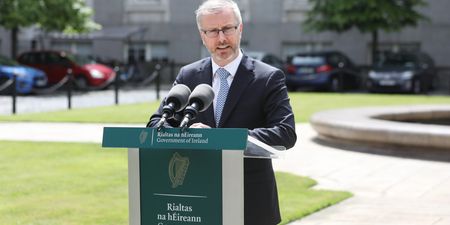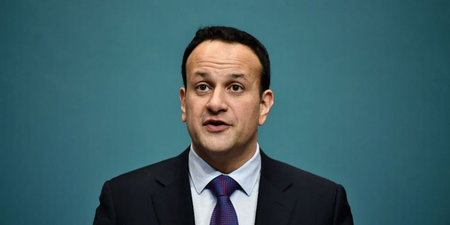On Saturday, February 8, the country will go to the polls for a General Election that seems to have been both coming for ages and happening all of a sudden. With new pledges and policy documents being launched almost every day, you could spend every waking hour between now and casting your vote reading and still not get through it all. (If you’ve actually done that, please do let us know!)
There’s plenty of public discussion about the major issues, from housing to health, that affect us all. But what are the parties going to do on issues that are of particular interest to women?
To help you decide where to cast your vote, we identified some key issues for female voters and asked each of the major parties and political groupings for their stance. Their answers are listed below, in alphabetic order.
*We will continue to update the information as we receive answers from the parties and groupings.
Ireland is now among the worst countries in the EU for unmet childcare services – how would the party tackle this issue?
Fianna Fáil
Fianna Fáil will revamp the childcare scheme with increased subsidy levels and price transparency to ensure parents benefit from lower costs. We will provide a tax credit for registered childminders to give parents greater choice in terms of childcare.
Statutory entitlement to maternity and paternity leave will be extended. Stay-at-home carers also play a crucial role that must be recognised, and we will increase the Home Carer Tax Credit to support these parents.
We will:
• Reduce childcare costs with increased subsidies
• Launch a new childcare tax credit to reduce registered childminder costs
• Lengthen Maternity Benefit to 30 weeks and allow for shared leave
• Double the Child Benefit Payment for the first month on the birth of a first child
• Create Edible Playgrounds so that children can grow their own fruit and veg in school
• Protect children from online pornography & gambling with new internet filtering laws
• Reduce average primary school class size to 20:1 in the next government
Fine Gael
We know the pressures parents are under because of childcare costs. We have made progress – increasing investment from €265m in 2015 to €638m for 2020, up 141% – but we know people are still paying too much.
We will reduce childcare costs further, increase quality and support the childcare sector. Fine Gael has doubled the number of children benefitting from subsidies, doubled the number of places and doubled the free pre-school (ECCE) scheme through a significant investment.
In 2019, 175,000 children received average subsidies of €64 per week. More than 9,000 children are receiving the highest weekly subsidy of €145. Over the next five years, we will invest an extra €400 million, as we reduce childcare costs for parents and increase quality and accessibility.
This will bring annual investment in childcare to more than €1 billion in 2025. This funding will be used to increase the thresholds and the subsidy rates of the new National Childcare Scheme over the next 5 years. It will allow many more parents benefit and it will reduce the costs they pay for their childcare. This scheme is fair – it ensures those who need most, get most.
Fine Gael’s full statement on childcare can be found in their manifesto here.
The Green Party
The Green Party would seek to address this by bringing Ireland into line with the EU average for childcare payments, making childcare affordable for all. This would be achieved through an integrated scheme of direct subsidies to families and caps on costs through local authority provided childcare, including universal access to early-years support services for children with disabilities or other additional needs.
To support this, we would establish a comprehensive framework for the early education profession including qualifications, professional development and remuneration – ensuring that childcare workers are incentivised to stay in the sector after graduation, and addressing the contribution of staffing shortages to limited places in childcare facilities.
In addition to this, we recognise the importance of non-formal childcare, provided by parents and/or relatives, and would take steps to ensure that this is supported. For example, we would raise both the basic rate of payment of Carer’s Allowance, and the scheme’s earnings disregard. For lone parents, we would restore the age limit for the One Parent Family Payment from 7 years of age to 18 years inclusive, or until a child has left second level education.
Labour
Childcare in Ireland is too expensive. Many parents, particularly women, are being forced to choose between working full-time and their children. There is also a severe shortage of creche spaces in many parts of the country.
It is clear that the current childcare model is not working. We need a new approach that brings Ireland into line with our European neighbours. Labour will develop a public Childcare Scheme for Working Parents, and the costs to parents will be moderate, set at the EU average level of childcare costs.
Sinn Féin
Transforming childcare into a fully fledged public service so that workers are properly paid and fees slashed by 66% or more than €500 per month on average
Establishing a dedicated early years and school age care agency with responsibility for all aspects of funding, oversight, planning and administration to ensure consistency in reporting standards and minimising duplication of administrative work
Achieving a 60% degree-led ECCE workforce by 2025, as recommended by the EU i.e. that 60% of all supervisors, managers, etc, hold degrees and will, therefore, increase the Learner Fund by €9.6 million to encourage greater upskilling
Increasing funding to the Access Inclusion Model by €6.5 million to make SNA supports available to a greater number of children with consultation of parents, childcare providers, therapists and other relevant professionals
Introducing a system/database of support ‘relief’ workers supported through the County Childcare Committees who can step in on a short-term basis for those leaving services to upskill ensuring no staff deficit for services
Providing additional resources to tackle the continuing backlog of Garda vetting, thereby speeding up hiring of staff
Developing a system for a passport style Garda vetting card that will follow the employee rather than the service
Reinstating the Childminding Advisory Service
Extending the six Childminding Development Officer positions with a dedicated officer employed by each of the 30 City and County Childcare Committees
Increasing investment in the School Completion Programme by one third and expansion of afterschool care
Social Democrats
Irish parents pay some of the highest costs in the world for childcare. For many, especially those with more than one child, childcare represents the cost of a second mortgage. We recognise that addressing the issues parents face when it comes to childcare requires looking at the full range of childcare arrangements used by parents and ensuring they are respected and supported by the State.
It is the long-term aim of the Social Democrats to establish a national public childcare service, and as a first step we would pilot this public provision of childcare in areas where there are the most acute shortages.
In addition, we will:
- Introduce additional paid parental leave from the end of maternity and paternity leave to the child’s first birthday.
- Provide a new Early Years Payment to cover children from the end of paid parental leave until entry into preschool.
- Significantly improve support under the National Childcare Scheme to allow far more families with children under the age of 12 to qualify, and to improve supports under the universal element of the scheme. Parents with young children who have not yet reached pre-school age would be given the choice of the Early Years Payment or assistance under the National Childcare Scheme. We would set aside funding to ensure that no parent is worse off when transferring from existing community childcare subvention schemes to the new National Childcare Scheme.
- Improve direct funding to the childcare sector to help improve employment conditions and training, and to improve sustainability. We will also seek to reduce the administrative burden on the sector through direct assistance from County Childcare Committees. We will deal with insurance hikes in the sector through significant reform of Ireland’s claims regime and the regulation of insurance companies. We will introduce a single Early Years and School Age Childcare Agency. If childcare fees continue to increase in line with subsidies, we will introduce measures to cap them.
What is the party’s stance on more flexible working hours allowing employees more time to spend with their families / outside work activities?
Fianna Fáil
Ensuring work-life balance is vital for individuals and families to live fulfilling lives. Existing employment laws need to be updated in order to cater for greater flexible working arrangements to help families and commuters with work-life balance.
We will: amend current employment legislation and introduce a right to request flexible working arrangements for workers in order to facilitate better work-life balance, and clamp down on exploitative bogus self employment contracts.
Fine Gael
We will work with employees and employers to bring in flexible working across the work-force. Flexible working encompasses a wide range of practices including part-time working, remote working, compressed hours, working from home and job sharing.
A labour market that offers flexible working solutions can result in a win for employers, workers and society alike. Fine Gael is pursuing this initiative, which will assist in retaining talent and balancing family commitments.
The Green Party
The Green Party are strongly supportive of flexi-time or other flexible working arrangements being used to facilitate employees spending more time with family or on non-work activities. We would take steps to legislate for employers to adopt these practices.
Labour
The way we work is changing, and we need to adapt to this change. Labour will implement a National Flexible Working Strategy, working with trade unions and employers at the National Economic and Social Council.
The strategy will develop good practice standards for permitting people to work from home or from other locations. The strategy will pay particular attention to the gender dimension of work-life balance, given that women still are disproportionately likely to be the primary caregiver for children.
We’ll also introduce a legal right to flexible working hours where an employer only has to make a reasonable adjustment to allow for them, to reduce stress and wasted time from commuting, and to facilitate work-life balance for parents and carers in particular.
Sinn Féin
(No mention of issue in manifesto.)
Social Democrats
It is clear from the uptake of the existing limited flexible work options that there is a high demand for these options. In addition, there is growing interest among workers and employers in providing for a four-day working week. This is already available and promoted in many other countries and the outcomes have been generally very positive. The demand for more flexible working is especially strong from parents of young children, those caring for an older person or a family member with a disability, and generally where people are seeking a better work/life balance.
We will establish a commission to research, trial and set out a pathway to the introduction of a right to flexible work including working from home, term-time working and a four-day week, and to ensure that it works for parents, families of all types, and for large and small employers.
















































